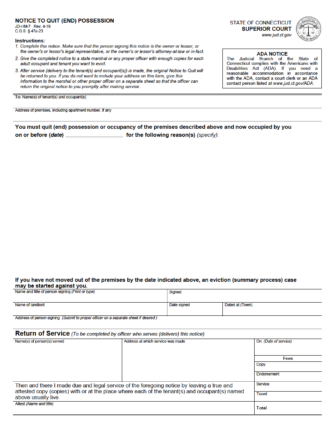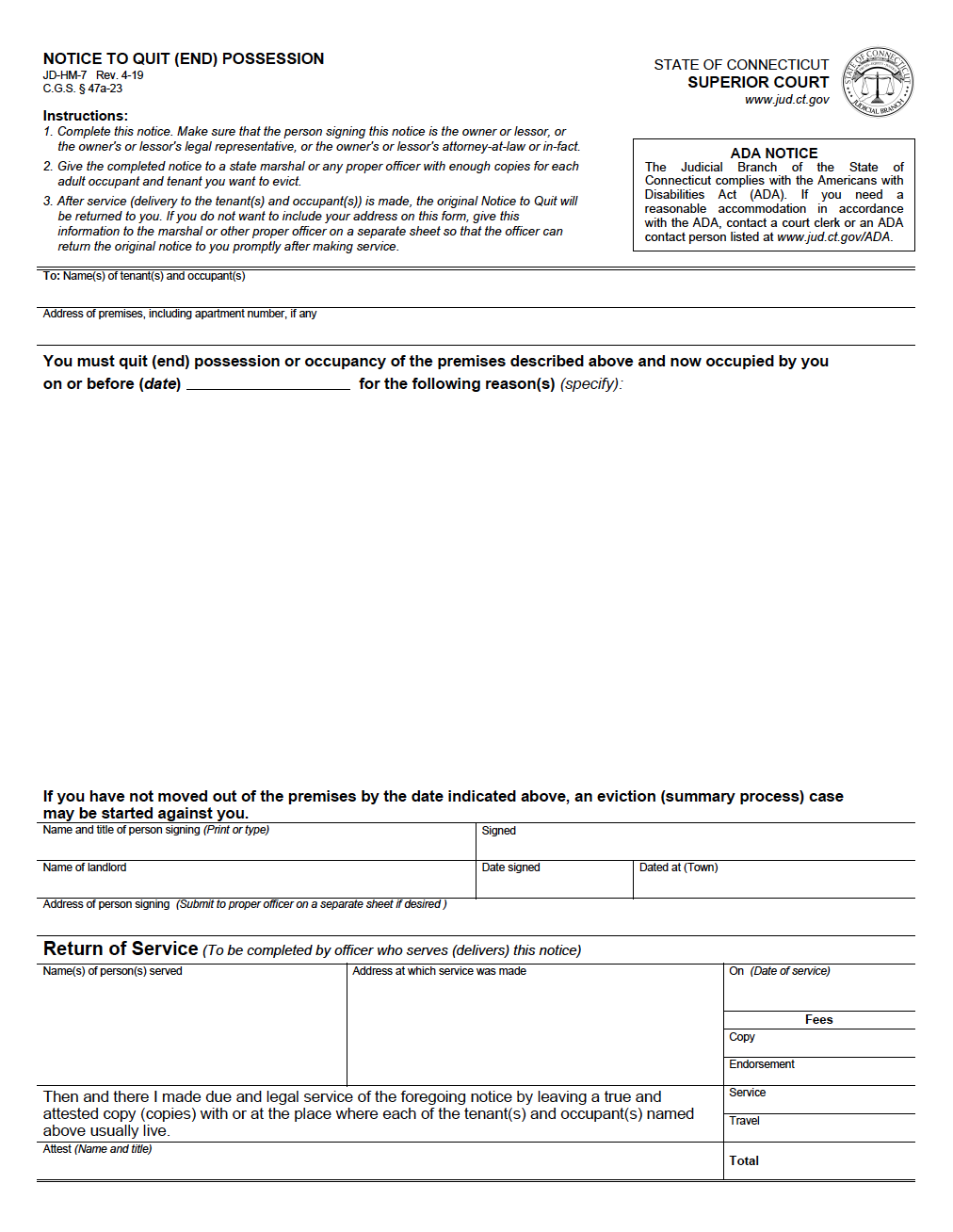Curable Violations
A landlord must deliver a 15-day pre-termination notice to a tenant who has committed any of the violations on the list below. They have 15 days to fix the issue before a 3-day notice to quit is served.[1]
- Material non-compliance that affects the health and safety of other tenants
- Material non-compliance that affects the condition of the rental unit or surrounding property
- Material non-compliance with the rental agreement
- Material non-compliance with rules and regulations established by the landlord
Incurable Violations
A landlord can deliver a 3-day notice to quit demanding that a tenant vacate the rental property for any of the following reasons[2]:
- Non-payment of rent (after the state-obligated nine-day grace period)
- Committing a nuisance
- Remaining on the property after the lease has expired
- Committing a material non-compliance a second time within a six-month period

